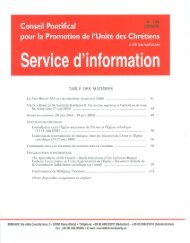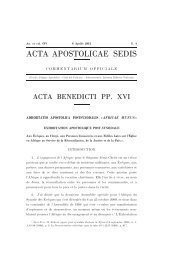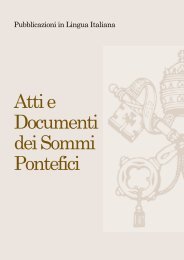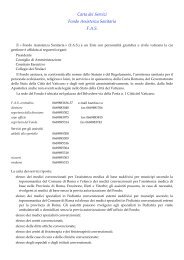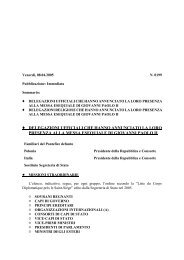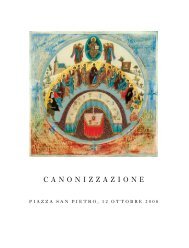ACTA APOSTOLICAE SEDIS - La Santa Sede
ACTA APOSTOLICAE SEDIS - La Santa Sede
ACTA APOSTOLICAE SEDIS - La Santa Sede
Erfolgreiche ePaper selbst erstellen
Machen Sie aus Ihren PDF Publikationen ein blätterbares Flipbook mit unserer einzigartigen Google optimierten e-Paper Software.
Acta Benedicti Pp.XVI 689<br />
cases as they arose, wished to ensure that nothing contained in it would give<br />
rise to difficulties should appeals be lodged to the Holy See.<br />
From these considerations, the following conclusions may be drawn as to<br />
the nature of the Framework Document. On the one hand, it was an advisory<br />
document designed to provide a uniform code of practice for individual<br />
Bishops to improve child protection measures and procedures in their<br />
Dioceses, and was recommended to them as such. On the other hand, from<br />
a more strictly canonical viewpoint, it was not an official document of<br />
the Episcopal Conference but a report of the above-mentioned Advisory<br />
Committee, deserving of serious study and which could serve as a source<br />
for the development of a more formal legislative project.<br />
(b) Clarifications on the notion of “recognitio”<br />
The Cloyne Report is incorrect in stating that “The Irish bishops sought<br />
recognition from Rome for the Framework Document but it was not forthcoming”<br />
(4.21). As will be clear from what follows, the Irish Bishops never sought<br />
recognitio from the Holy See for the Framework Document.<br />
To dispel misunderstandings, it may be helpful to clarify the canonical<br />
notion of recognitio. Conferences of Bishops may propose canonical legislation<br />
for their territories that is complementary with the universal law of the<br />
Church. For this to be binding, there are procedures which must be followed<br />
in order to enact the proposed legislation. In the Church, this procedure is<br />
called recognitio.<br />
The relevant norm is canon 455 of the Code of Canon <strong>La</strong>w which states:<br />
“§ 1.The Bishops’ Conference can make general decrees only in cases where the<br />
universal law has so prescribed, or by special mandate of the Apostolic See, either<br />
on its own initiative or at the request of the Conference itself.§ 2.For the decrees<br />
mentioned in § 1 validly to be enacted at a plenary meeting, they must receive at<br />
least two-thirds of the votes of those who belong to the Conference with a deliberative<br />
vote.Those decrees do not oblige until they have been reviewed by the<br />
Apostolic See (nisi ab Apostolica <strong>Sede</strong> recognita) and lawfully promulgated.<br />
§ 3.The manner of promulgation and the time they come into force are determined<br />
by the Bishops’ Conference.§ 4.In cases where neither the universal law<br />
nor a special mandate of the Apostolic See gives the Bishops’ Conference the<br />
power mentioned in § 1, the competence of each diocesan Bishop remains intact.<br />
In such cases, neither the Conference nor its president can act in the name of all<br />
the Bishops unless each and every Bishop has given his consent.”



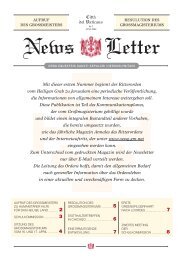
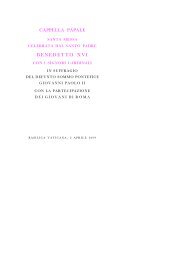
![AAS 01 [1909] - La Santa Sede](https://img.yumpu.com/51456523/1/180x260/aas-01-1909-la-santa-sede.jpg?quality=85)
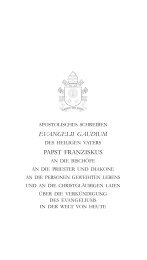
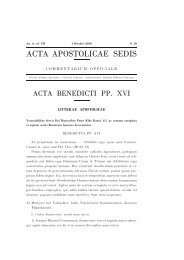
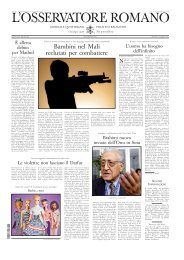
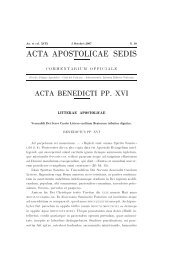
![AAS 20 [1928] - La Santa Sede](https://img.yumpu.com/19772818/1/180x260/aas-20-1928-la-santa-sede.jpg?quality=85)
